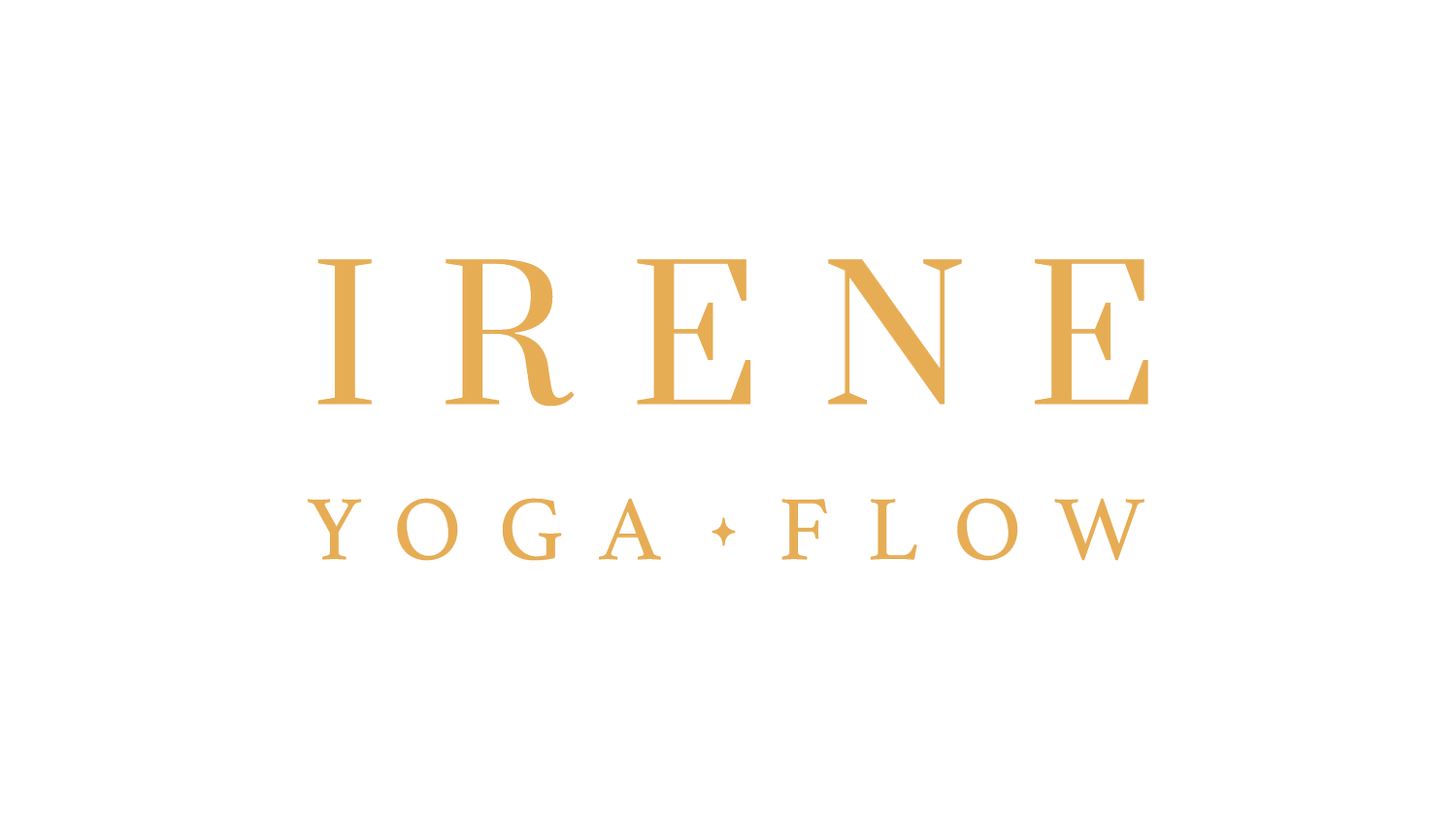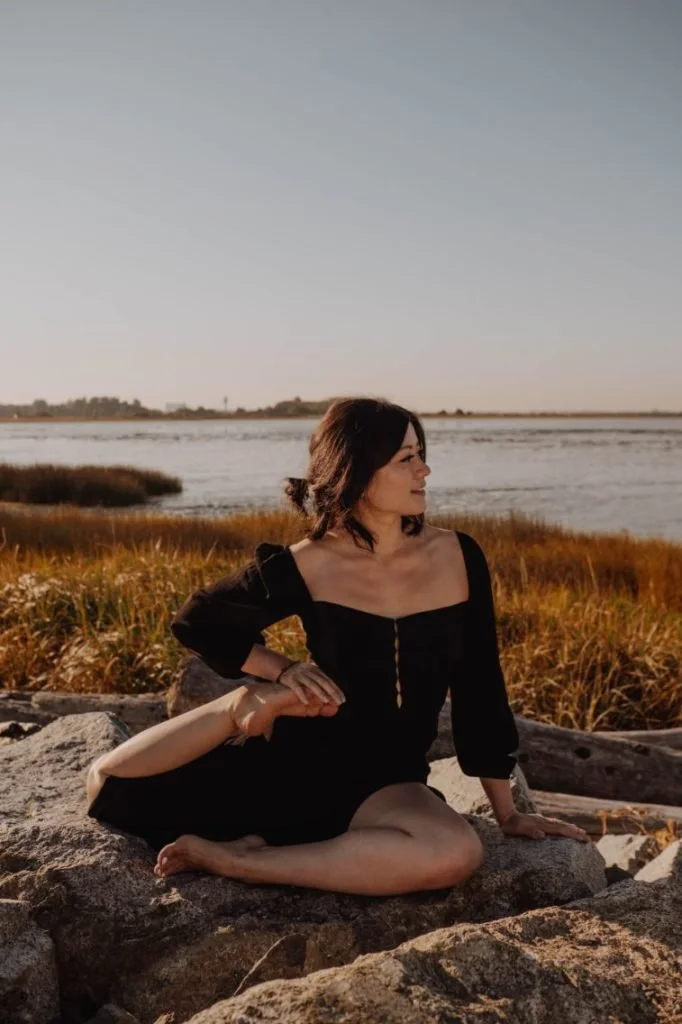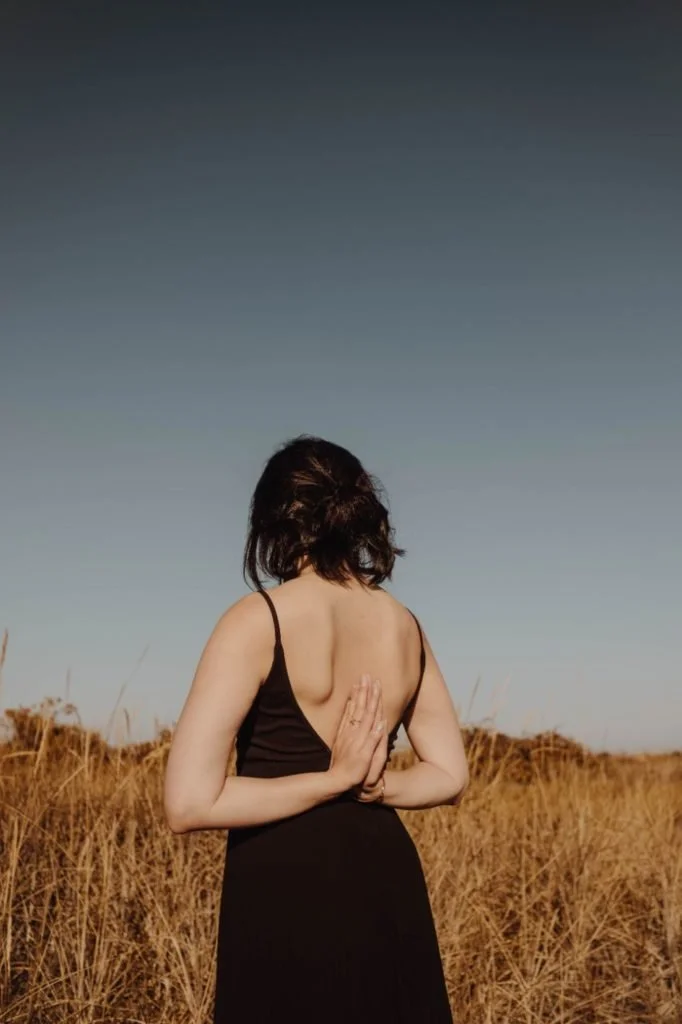Cold Tea Collective Byline: Reclaiming Identity: A Spiritual Journey to Social Justice
At the intersection of wellness and identity, Irene Lo shares how her journey to decolonize her worldview led to a deeper realization of advancing the social justice conversations.
Once upon a time, my dream job was working in public relations on the agency side. After graduating from my PR program, I worked in food tech before landing a position in a marketing agency. I worked with an empowering team of women. I was busy and that made me feel good about myself. I worked my ass off at that job before securing my next dream PR job at a well-known not-for-profit.
But that dream came at a cost. I was living in a constant state of stress. I no longer found myself excited by my professional goals or motivated to tackle challenges at work.
I would get cystic acne every few weeks and found myself relying on food and shopping to cope with my emotions. Even after I transitioned from one job to yet another dream job managing public relations at a non-for-profit, my depression and health problems refused to go away.
I grew increasingly unhappy at a time when it seemed, at least on the outside, that my hard work was starting to pay off. Sometimes I’m taken aback at how much I normalized my unhappiness. How much I internalized the colonizer within to buy into the lie of assimilation and the model minority myth. I stayed quiet and did the work with my head down in order to belong.
More Than A Way to Cope
While I pursued my career in marketing, I simultaneously deepened my journey into yoga. I started practicing yoga when I was a teenager, but it wasn’t until I started working office jobs that I became obsessed with the physical practice of yoga. I completed my 200 hour training to become a yoga teacher, and spent all the vacation days that I could on retreats and trainings.
For me, yoga was a gateway to social justice. Yoga was how I began to decolonize my worldview and understand the systemic oppression that keeps Black, Indigeous, and people of colour communities pitted against each other to fight for proximity to power — which is whiteness in our society — and to constantly operate in a fight-or-flight mindset of survival.
People often tell me that the wellness industry is a relaxing change of pace. But the systemic oppression that exists in our society also exists in the yoga and wellness community. It’s something that became clear to me as I delved deeper into my yoga practice. I was looking for a yoga mentor that explored the power dynamics that made modern yoga inaccessible and unwelcoming. Joining a group mentorship led by a yoga teacher who brought a decolonization framework to thinking about and teaching yoga was pivotal for me.
Decolonizing My Views and My Life
Shortly after the decolonizing yoga mentorship, I found myself breaking down in tears during a guided meditation. I finally admitted to myself that I did not enjoy the life that I was living. I was no longer sure who I was, if I could even recognize the “me” underneath the societal masks anymore. I needed to do something for myself that was more than using my vacation days to escape. Yoga helped me realize that I — and others — don’t have to live like this. That we can create better worlds than the reality we are currently living in.
I had bought into colonized narratives that tied my worth to the capital I was producing, of hustle culture and the cult of business, but I had also bought into colonized narratives of what wellness and spirituality looked like too, where it was always pretty, positive, and almost always white. So I quit my job that I worked so hard to get to pursue wellness full-time as a yoga teacher and as a co-creator of the Womxn of Color Summit.
This deep inner work of challenging our worldviews is one of the initial steps to decolonization and to healing ourselves. I am writing this article for Asian millennials on their journey of social justice, and I am also writing this article for Asian millennials on their journey of self care and spiritual growth because those are two paths that lead to the same goal: union.
If this is you, here are some reflection questions to ask yourself as you work to decolonize your worldview and heal your own wounds.
1. Are you culturally appropriating from your own culture?
For Asian immigrants of the diaspora, reclaiming our ancestral spiritual practices can bring up questions of cultural appropriation, due to our distance from our origin country. When we have assimilated to colonized values, this worldview will carry over to how we approach our spiritual practice. With the best of intentions, our impact can still create harm. We can end up culturally appropriating when we operate with a colonized worldview.
Cultural appropriation exists in the practice of spiritual traditions. Yoga is a clear example of how white people have controlled the narrative of what yoga is, who gets to be seen as experts, and who are welcomed into the space. But it is happening with every Indigenous practice.
One disturbing example is the rising trend in Canada and in the United States to remove the option to take traditional Chinese Medicine certification tests in the Chinese language. Cultural appropriation exists when a dominant culture controls and hoards resources from a subordinate culture without consulting or disregarding the Indigenous people that the spiritual tradition comes from.
Ask yourself if you are learning about Japanese Reiki from a Japanese practitioner, yoga from a South Asian practitioner, or traditional Chinese medicine from a Chinese practitioner. There is nothing wrong with learning from a teacher that isn’t born into the culture. But it is part of the process of decolonizing when we start to ask ourselves who are we learning from?
I began to reclaim my ancestral spirituality by observing how my mom cooks, orients her home, the holistic treatments we received, as well as the charms we wore as necklaces or carried in our wallets are all a part of my family traditions. Respect and reverence grounded my exploration of TCM food nutrition, acupuncture, herbal remedies, as well as Chinese astrology and geomancy.
2. Are you commodifying your spiritual practice?
In our capitalistic society, anything can be commodified – including spiritual practices. There are pseudo-spiritual businesses co-opting the language of wisdom teachings in order to sell us solutions for our well-being. Likewise, each of us is capable of commodifying our own spiritual practice when we try to profit off it.
When we commodify our spirituality, we are erasing its teachings. Our spirituality is not a means to an end. It doesn’t have to look a certain way because spirituality is not about what looks pretty or positive – a lot of it is messy and unseen.
In relation, there is this idea that we want instant samadhi or enlightenment. We want to memorize our way to spiritual knowledge but it is a lifelong practice, an embodied experience. I believe that spirituality is meant to be mysterious. That not everything in life is an algorithm.
All of this is to say that we are wanting to observe and detach from the ego that believes it is separate and superior to every living thing through our spiritual practice.
Pantajali, an Indian sage and author of the Yoga Sutras, warns us to not be distracted by the powers gained as a hatha yogi because that is not the goal. This warning applies to us today too, whether you are exploring yoga or other spiritual practices. Meditation can help us be more productive. Doing asana can create leaner muscles and a more flexible spine, but we have to be careful not to use spirituality as a lifestyle prop or a means to a (capitalistic) end.
Spirituality is about filling our cup so that we can fill the cup of others.
3. How are you creating a real community among Asians and other POC communities?
We can be an agent or a target of systemic oppression, and we can hold both dualities within us simultaneously.
We hear of one community’s suffering, and our response is to share our suffering as a way to one up or minimize the social issues that keep all of our communities disempowered. Oppression olympics exists among POC communities, and it will continue to exist if we operate out of a survival mindset. It is a trickle-down effect of the divide and conquer policy where we have been historically pitted against not only our own community but other POC communities that we should stand in solidarity with.
As the great thinker Audre Lorde says, “the master’s tools will never dismantle the master’s house.” We cannot look to fix a broken system that thrives on our oppression, so we need to understand how our proximity to whiteness shows up within ourselves. We can do this by asking questions of our viewpoints, like how our anti-black prejudices factor into the skin tone and body shapes we view as beautiful or what cultures are considered sophisticated and why.
There is no collective liberation when one Asian person succeeds and does not lift up other BIPOC folks. The horrific ethnic genocide of the Uighyr Muslims happening right now in China impacts us. The farmers’ protest happening in India right now impacts us. Black Lives Matter impacts us.
Our survival mindset has us believing there is a scarcity of resources when, in actuality, there is more than enough abundance for everyone.
Creating a real community is knowing how to take accountability for our actions when we have caused harm because we will cause harm. It is about how we react when we are in uncomfortable situations that prove our worth as true co-conspirators with each other and BIPOC communities.
It can be hard to do this healing work. But do you know what’s harder? Believing that this is the best that it’s ever going to get and pretending systemic oppression doesn’t affect us. Our ancestors survived so that we could thrive. We have the freedom to change our karmic patterns of behaviour and the ability to be a part of social change.
Cold Tea Collective: https://coldteacollective.com/reclaiming-identity-a-spiritual-journey-to-social-justice/



